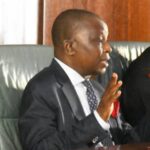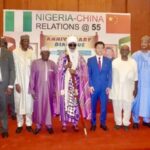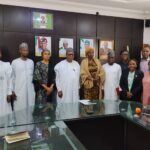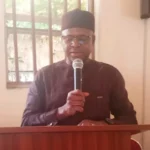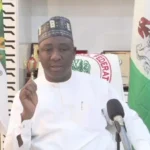By Emmanuel Oloniruha
A Data Analyst, Daramola Omoyele, has called for legal reform and data harmonisation to enhance authentication of voters’ National Identification Number (NIN).
Omoyele, in an interview with the News Agency of Nigeria (NAN) in Abuja, said this would not only simplify the voting process but also strengthen data integrity across public institutions.
He wondered why Nigerians with valid NIN should be asked to do separate voter registration, describing the process as redundant.
The data analyst said it would not only waste time and resources but also contribute to the disenfranchisement of millions of eligible voters.
He also pushed for legislation that would recognise NIN (with biometric verification) as sufficient for voter registration, thereby reducing bureaucratic hurdles.
According to him, modern democracies such as India and Estonia utilise centralised, interoperable databases where a national identification serves as a reliable foundation for voter verification without repeated re-registration.
“If Nigeria’s government truly wants to advance digital governance and reduce election fraud, the solution lies not in forcing people to re-register but in harmonising existing data,’’ he said.
Omoyele stated that the NIMC database already holds the essential biometric and demographic information, fingerprints, facial data, date of birth and the address needed to verify voter eligibility.
He advised Independent National Electoral Commission (INEC) and National Identity Management Commission (NIMC) to collaborate on use of NIN for voter authentication.
“This will simplify registration, eliminate redundancy and ensure that no eligible Nigerian is denied their right to vote.
“There is no compelling technical justification for forcing citizens to re-register with INEC.
“Instead, the electoral body should prioritise integration with NIMC through a secure, auditable data-sharing framework,’’ he said.
The data analyst highlighted the gap between Nigeria’s potential voting population estimated to be over 100 million out of a population of over 200 million, and the actual turnout.
He noted that in the 2023 general elections, only 24.9 million people voted, representing only 26.72 per cent of the registered voters.
The figure, according to him, raises serious questions about how less than 10 million votes could decide the outcome of a presidential election in a country with over 200 million.
“Why do tens of millions of eligible Nigerians remain unregistered or, if registered, unable to vote?
“This is not a mere statistical anomaly. It points to systemic exclusion and inefficiencies that effectively silence vast swathes of the population,’’ he said.
He argued that if there’s a mismatch in administrative barriers and duplication of registration among government agencies, millions of eligible citizens could be prevented from being registered or being able to vote, saying this could amount to ‘fraud by omission’.
He recommended that, given the scale of the gap between eligible citizens and actual voters, INEC, under the newly appointed Chairman, Prof. Joash Amupitan, should treat it as “a minor flaw’’ by taking certain pragmatic steps.
The pragmatic steps, according to Omoyele, should include treating NIN as a primary key for voter qualification, eliminating the need for a second manual registration process.
“Once the NIN is verified (that is, age, nationality and biometric match), eligible citizens should automatically be qualified to vote.
“This will eliminate the need for a second, manual registration process for those who already have valid national identity records,’’ he said.
Omoyele also recommended real-time synchronisation and continuous update of data instead of periodic bulk registration drives, using dynamic sync so that NIN updates automatically reflect in the voter register.
He also called for full audit of mismatches between NIMC and INEC records and creation of necessary mechanisms for citizens to resolve such discrepancies via digital portals or local offices.
Omoyele tasked INEC on public transparency and data releases through published anonymised statistics showing the number of potential voters excluded, the reasons and the process of resolving them.
“Where digitisation is weak, deploy mobile units and local kiosks to help verify identity and resolve registration anomalies, using NIMC data as a baseline.
“They must also ensure that no one is turned away solely because INEC’s manual database doesn’t reflect what NIMC holds.
“If Prof. Amupitan implements these changes, Nigeria’s electoral process will move from fragmentation to coherence, from distrust to accountability, and from exclusion to inclusion.
“In a data-driven world, democracy cannot function well when its institutions duplicate, obscure or delay access,’’ he said. (NAN)(www.nannews.ng)
Edited by ‘Wale Sadeeq



